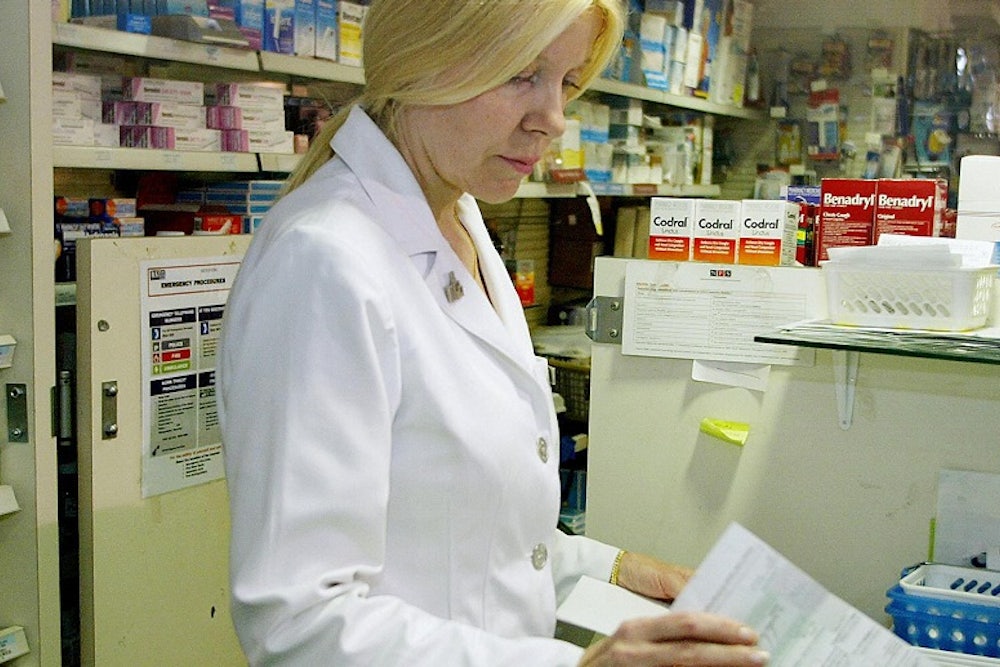Women and girls of all ages will finally be able to buy a generic version of the “morning-after pill” without a prescription or an I.D.—just by taking it off the drug store’s shelf. The reason is a new Food and Drug Administration policy, which the agency announced last week. The result will be cheaper access to the drug, which can prevent pregnancy within 72 hours of unprotected sex. Generic versions typically cost up to 20 percent less than the name-brand drug, Plan B One-Step from Teva Pharmaceuticals, which sells for about $50 a regimen.
It’s a victory for women’s health advocates, who have emphasized the importance of generics—and, of course, it’s a victory for women trying to avoid unwanted pregnancies. But this big step forward comes with a smaller step back. Under the new FDA ruling, makers of the generic drugs must indicate, on the label, that the drug is intended for “women 17 years of age or older.” Teva’s label will bear no such caveat. The requirement is bound to create confusion, potentially discouraging some people who want the drug from getting it.
It’s an unprecedented regulation. But, then, the FDA’s treatment of emergency contraception has always been unusual. For years, conservatives tried to block wider access to the drug, arguing that it encourages promiscuity and might interfere with implantation of a fertilized egg. And under the Bush Administration, the FDA refused to authorize over-the-counter sales.
That started to change in 2009, when the Obama Administration took over and the FDA approved Plan B for over-the-counter sales—but only for women 17 and older. Younger women and girls would still need a prescription.
In 2011, events took a turn for the truly bizarre when the FDA went ahead and recommended that Plan B be available, without prescription, for "all females of child-bearing potential." The recommendation had the backing of FDA scientists, who had reached that conclusion in 2001. But Health and Human Services Secretary Kathleen Sebelius overruled the agency and, by the way, the medical community.
Then, last May, a federal judge ruled that the Obama administration had to comply with the recommendation of agency scientists. Ultimately, the government brokered a compromise. Plan B One-Step, the name brand medication from Teva, would be available without a prescription and in front of the counter. But the FDA left existing restrictions in place for generic versions, even though they are functionally the same.
The logic behind the distinction wasn’t scientific: It was commercial. FDA protocol grants three years of exclusivity every time a drugmaker conducts new clinical studies that result in a major change to the product—it’s an incentive for companies to bankroll costly research to improve their wares. In this case, since Teva was behind the studies that made the case for allowing girls under 17 to buy the morning-after pill without a prescription, the FDA was looking for a way to protect Teva’s share of the market.
Now, according to a letter to the makers of generics from Kathleen Uhl, acting director of the Office of Generic Drugs, the FDA has decided that “the exclusivity is too broad,” so it’s letting the generics out from behind the counter. But it’s requiring generic drug makers to include the special label, in order—as Uhl’s letter puts it—to “carve out” some exclusivity for Teva.
Labeling a drug “17-and-up” when anyone can legally buy it is confusing—and uncertainty already plagues the sale of Plan B. A study released in December found that 60 percent of pharmacists surveyed were dispensing misinformation to teens who called about Plan B—and 20 percent were telling teens they couldn’t buy the drug at all. Still, access should be easier than it was before: Teens will be able to take the drug off the shelf without asking permission from the person behind the counter. Teva’s exclusivity will expire in three years—and so, hopefully, will any confusion.
